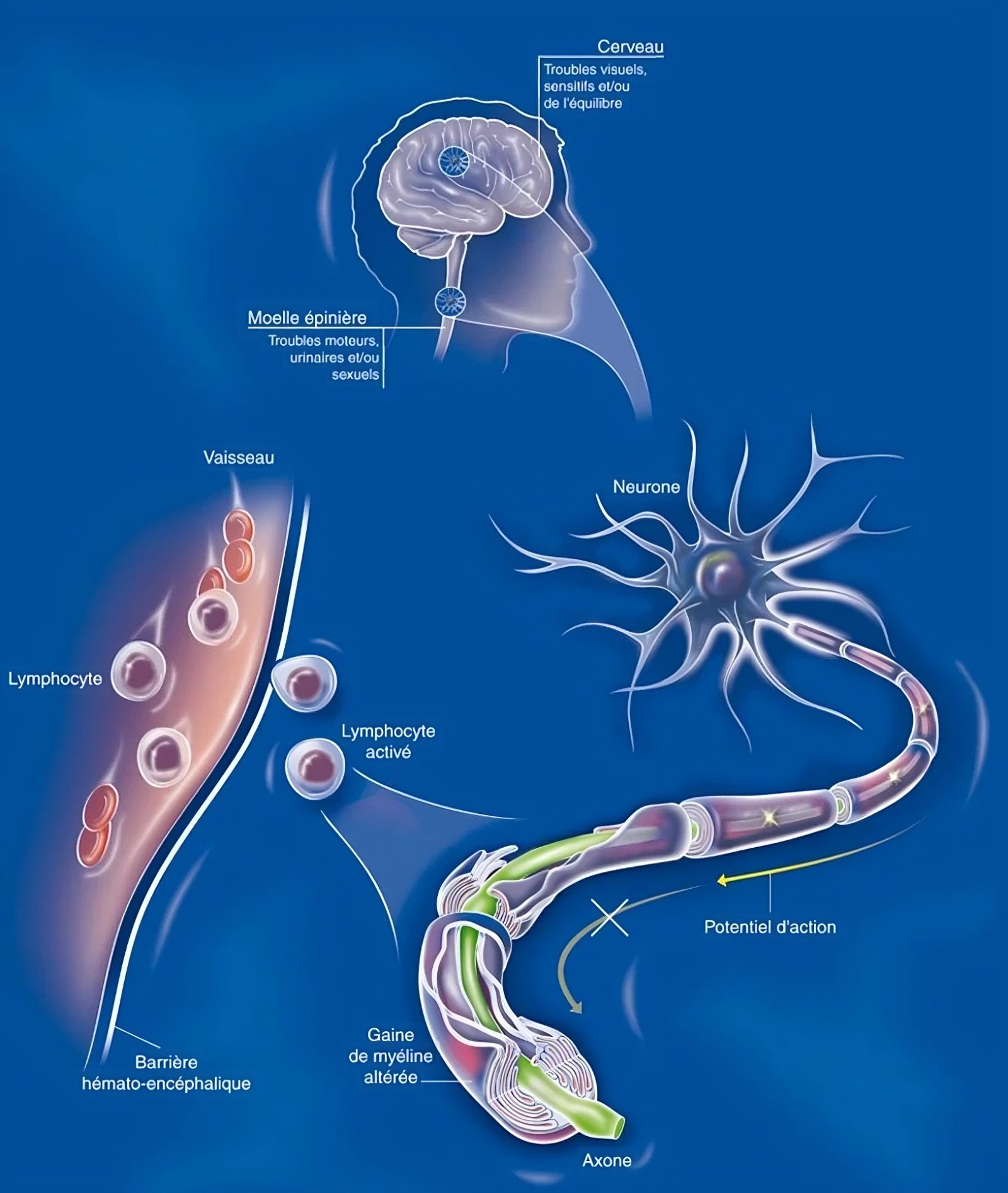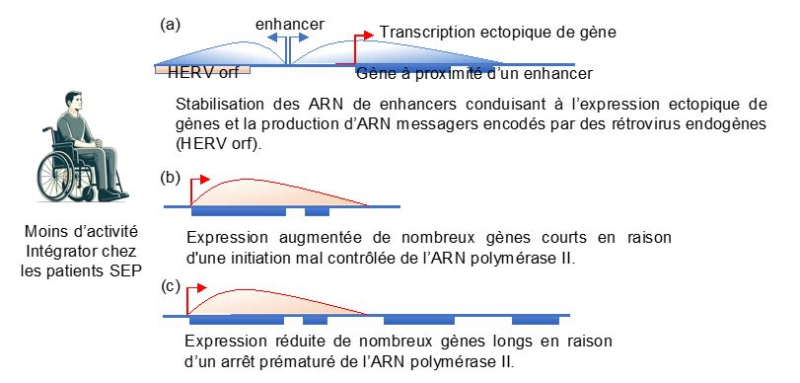Follow us on Google News (click on ☆)
The molecular mechanisms underlying this disease remain poorly understood. In an article published in Life Science Alliance, scientists reveal how a loss of control over the enzyme that reads genes may explain several aspects of the disease.

Attacked by lymphocytes, the myelin sheaths are damaged, disrupting or blocking the transmission of information. The disease manifests as inflammatory relapses that lead to demyelination.
© Inserm, C. Fumat
Multiple sclerosis, an autoimmune disease still not fully understood
Multiple sclerosis (MS) is a chronic autoimmune disease of the central nervous system, characterized by the progressive degradation of myelin, a substance that surrounds and protects nerve fibers. This demyelination disrupts the transmission of nerve signals between the brain, spinal cord, and the rest of the body, leading to numerous neurological symptoms.
Mechanistically, MS is primarily marked by an abnormal immune response where T lymphocytes attack myelin as if it were a foreign body.
The origins of this autoimmune response remain poorly understood. Research suggests a complex mix of genetic, environmental, and infectious factors, but no single molecular mechanism has been identified as the direct cause.
A new molecular mechanism unveiled
By analyzing rare RNAs, the study shows that in some MS patients, a dysregulation of gene expression in immune cells responsible for pathogen destruction is linked to dysfunctions in the Integrator complex, a protein machinery essential for the maturation of non-coding RNAs.
Due to this dysfunction, the RNAs produced from DNA sequences regulating gene expression become longer and more abundant. These sequences, also called "enhancers", partly originate from domesticated ancient viruses and are used by the cell to better control gene expression.
Thus, the imperfect maturation of enhancer RNAs could explain the production of viral genes frequently observed in MS patients.
However, the Integrator complex also influences the activity of RNA polymerase II, the enzyme responsible for reading protein-coding genes. In the absence of optimal Integrator activity, RNA polymerase II more frequently initiates transcription but struggles to complete it. This favors the expression of short genes, such as those involved in inflammation, while long genes, essential for example to the integrity of endothelia, are not fully transcribed, thus compromising their expression.
Hence, several transcriptional observations in MS patients can be explained by the same phenomenon, greatly improving our understanding of this complex disease.

© Christian Muchardt
References:
Porozhan Y, Carstensen M, Thouroude S, et al. Defective Integrator activity shapes the transcriptome of patients with multiple sclerosis.
Life Sci Alliance. 2024;7(10):e202402586. Published 2024 Jul 19.
doi:10.26508/lsa.202402586